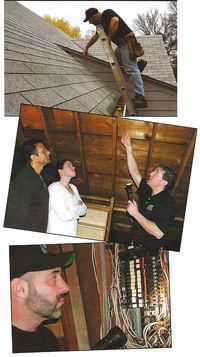 Ok... you have negotiated the deal to buy your new home and signed the purchase agreement contingent upon inspection. So what happens next?
Ok... you have negotiated the deal to buy your new home and signed the purchase agreement contingent upon inspection. So what happens next?
Your purchase agreement dictates how much time you have to complete and respond to the inspection, so be sure to get it scheduled right away... you might even want to schedule it before signing off on the purchase agreement to be sure the timing works. If you plan to have a radon test, be sure to allow a couple days for that as well. The most common time frame for completing and responding to the inspection in a traditional sale is 5-7 days, but it can sometimes be shorter or longer depending on circumstances. Foreclosures usually give a total of 10 days.
The purchase agreement states that Buyer shall satisfy Buyer as to the qualifications of the Inspector(s) so you can have anyone you feel comfortable with perform the inspection, even 'Uncle Charlie'. However, since buying a home is one of the biggest investments most people make, most buyers hire a professional home inspector.
When scheduling, allow about 2-3 hours for the inspection... but it can be shorter for a small property in great condition, or longer for a larger property or more issues.
The inspection usually starts with the exterior of the property, checking everything from the roof, windows, siding and landscaping (is water directed away from the foundation?) to the garage and even fencing if there is any. Then you will move inside, usually starting with the basement to check structure, furnace, electrical, moisture issues, etc... then moving up all the way through the house to the attic. Think of your home inspection like a thorough house exam.
Should you plan to be there for the inspection? Yes!!! Perhaps the biggest value in the home inspection, especially if you are a first-time homeowner, is learning about your new home and planning ahead for maintenance and future repairs... so you know what to look for and do to keep your home in good condition.
You will learn about routine maintenance issues, but what you will usually ask the seller to address as a result of the inspection are items that are deferred maintenance affecting the integrity, safety and use and enjoyment of the home... sometimes issues the sellers themselves may not be aware of.
You may even find issues of big enough concern to you to cancel the purchase agreement and have your earnest money refunded... how the inspection contingency protects you and your investment.
Sharlene Hensrud, RE/MAX Results - Email - Minneapolis Buyer's Agent

